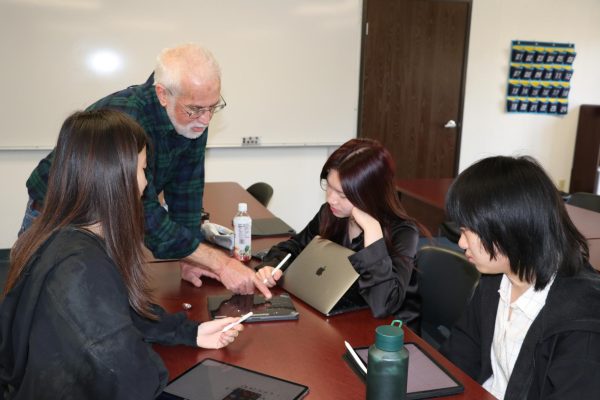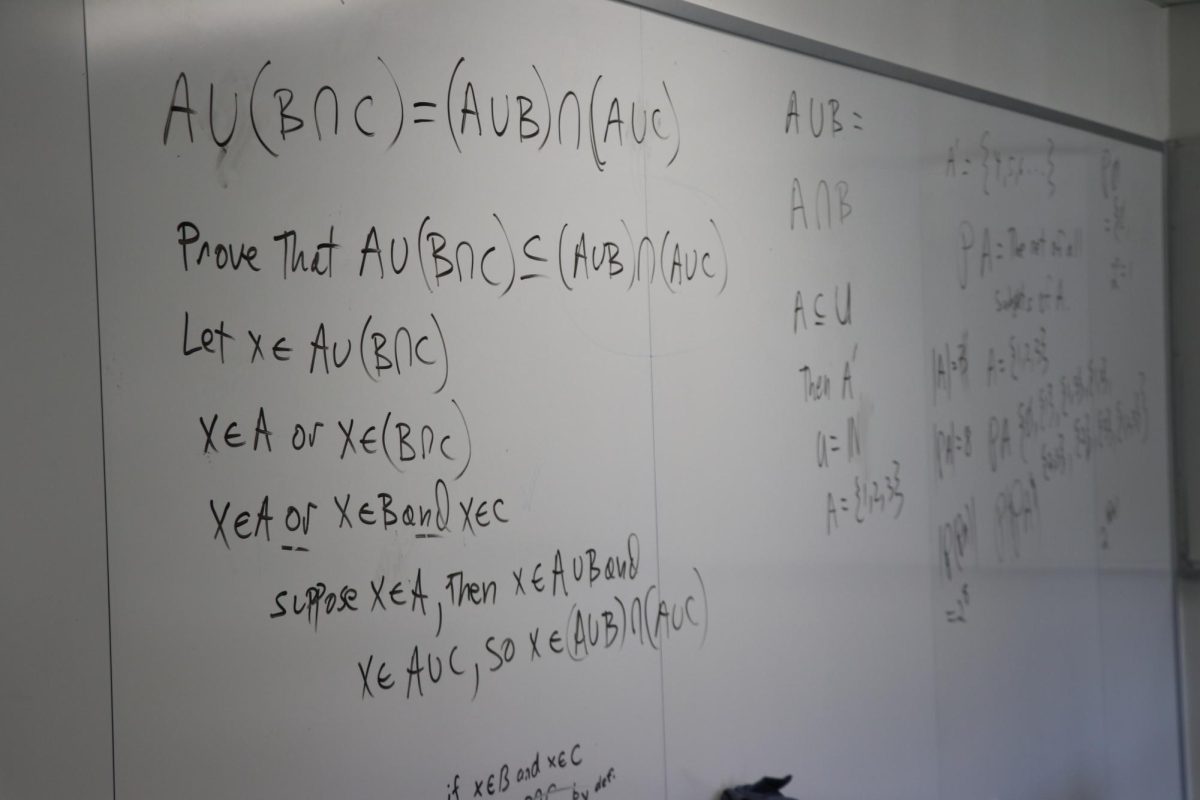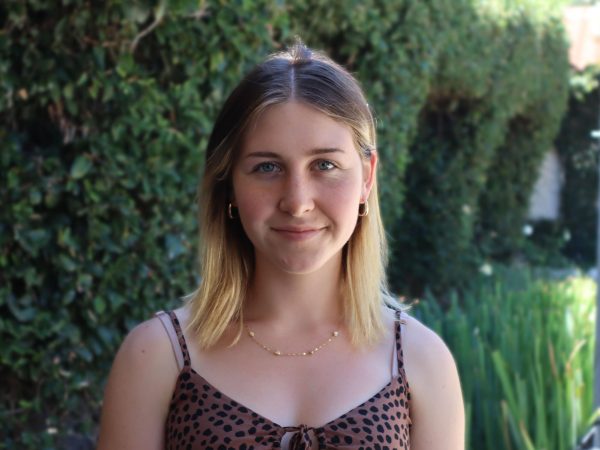A seemingly mundane Webb scene, seven students — with not much in common at first glance — all walked down to Chandler field to go to class. The catch? It was 4 p.m. on a Saturday, and the class they were going to was nowhere in their SIS (Student Information System) schedule. In Chandler 325, Dr. Kenny Nguyen, Mathematics Department head, Dr. Thomas Cuda, and Ein, Dr. Nguyen’s smiling corgi, eagerly awaited their arrival.
Everyone was gathered with one goal in mind: exploring math — but not in the conventional way, at least not how any math class at Webb teaches the subject. Looking at just the calculus classes that are currently offered, they only deal with learning how to solve problems and apply different formulas, rather than why they are used in the first place.
A few months earlier, Dr. Nguyen had sent an email to a group of students whom he thought would be interested in a new experiential venture, describing the details of a potential Webb mini course based on mathematical proofs.
Dr. Thomas Cuda (who had previously filled in for James Dahler to teach Advanced Studies Linear Algebra online in the second semester of the 2022-2023 school year) had designed the course and proposed it to Dr. Nguyen and Michael Hoe, Assistant Head of Schools.
Dr. Cuda hoped that the mini course could have eight to ten students, and that class sessions could take place over several weekends in the second semester of this school year.
Unlike the way that students normally sign up for clubs and activities at Webb, the process for finding students interested in the course relied largely on mutual connections and word of mouth.
“A lot of it was Mr. Hatala and I just reaching out,” Dr. Nguyen said. “We reached out initially to Mr. Hoe [because] there was a group of students who had talked to him about having something like this — we reached out to them first as an initial group, and then Mr. Hatala and I reached out to students who were taking classes throughout… people who were interested responded.”
Over the span of a few months, the list of students planning on taking the course grew, shrank, and transformed many times. Eventually, students from every grade, and with varying interests, found their way onto Dr. Nguyen’s mailing list. Each had their own questions about everything from the logistics of the course to whether they would even be allowed to take it.
Here is an excerpt from Dr. Cuda’s original proposal for the mini course:
“The course could be open to students of any age regardless of the level of math completed. But it is very important that the students enrolled have the intellectual sophistication to tackle proofs and the willingness to try it. I say the willingness as it can be intimidating to some as there is no material, or rules, that you can learn that if mastered get you to a proof. You have to be willing to take risks and just try things and be willing to sometimes fail.”
Dr. Cuda and Dr. Nguyen both clarified that the course is not a part of the official Webb curriculum — it is not for credit, and there will be no official grade given at the end. Official, in-person class sessions will only run one weekend every month from January to March, four hours total between Saturday and Sunday. In between, Dr. Cuda will host office hours-style Zoom meetings to work through “homework”.
In fact, Dr. Cuda described how from the start, he had intended for the course to just be supplementary enrichment for students who had already taken higher-level math courses at Webb. He also hoped word of the proposal would reach those who wanted to learn logic-based math in addition to “standard” math.
“When I taught Linear Algebra, I was really impressed with the students… what I noticed is that some of them were in junior year doing Linear Algebra, and I was wondering what they would do senior year,” Dr. Cuda said. “I also thought it might be nice to do something where they get used to proving a lot of theorems. A stumbling block in college, when you get some math courses, is where you have to prove things… it knocks a lot of people out.”

Dr. Cuda believes that offering the proofs mini course will help set up current Webb students for success in college, whether or not they ultimately choose to go into math, or even a STEM field at all. Writing proofs in the form of sentences that explain how certain elements can be included, excluded, or transcribed in sets can fundamentally change how we visualize any kind of information.
“I think it can make a big difference, even if it’s not mathematical — if you can think about something and re-represent it in a new way, it helps you sort of figure it out just because you represented it differently,” Dr. Cuda said. “I really do believe it makes you smarter. So, I think that’s a good reason to do it in and of itself. I think it’s like weightlifting of your brain.”
“Sometimes transfer doesn’t happen right away,” Dr. Nguyen said. “We do a little bit of proofs in [multivariable calculus], and I’ve had students in the past come back to me and say, ‘I didn’t know it would be useful but here I was, writing a law brief, writing a humanities paper… that logical sequence of arguments made me rethink the way I wanted to present my work’.”
Indeed, from Sonia Sotomayor to Bill Russell, successful people from every field and industry have spoken about taking some version of a proof-based course sometime during their academic life.
For those taking the mini course this semester, it might be the first step to them becoming a better Webb student, critical thinker, and even advocate for themselves in the future.
To the readers: The author would like to dedicate this article to memory of Jim Dahler, who taught math at Webb for nearly 40 years. Mr. Dahler was an integral part of the math department, and he was an inspiration and mentor for countless students over the years. The proofs mini course, along with every math class at Webb, will not be the same without his influence.









